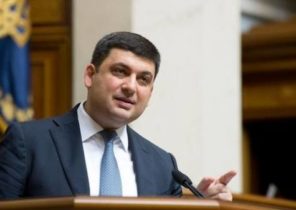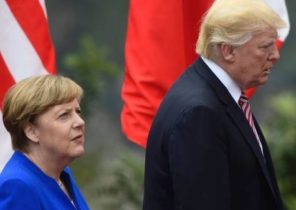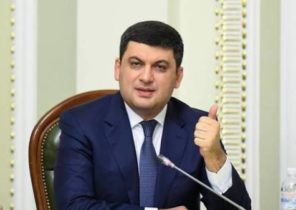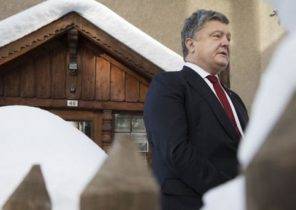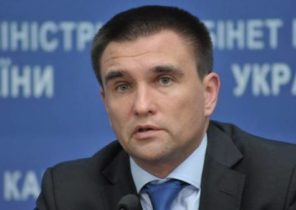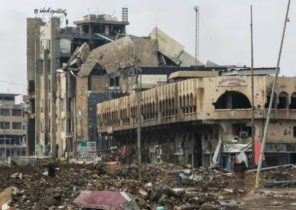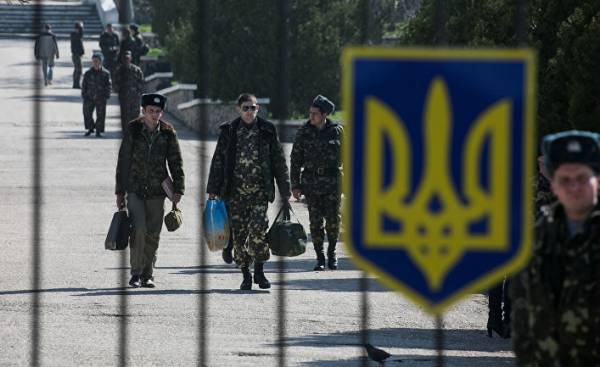
In February 2014, unmarked troops invaded the Crimea and rapidly seized key military and strategic targets. Was hastily organized referendum, even though it violated Ukrainian law and international norms. The Russian press claimed that 97 percent of those who voted for the annexation, and the turnout was 83 per cent. Although these figures were quoted in the international media, the report of the Council under RF President on development of civil society and human rights (which was posted on the website president-sovet.ru) showed that for joining Russia voted only 15 to 30% of the Crimeans. When the case of the pseudo-referendum was hushed up between the newly proclaimed Republic of Crimea and the Russian Federation signed the agreement on the beginning of the integration process.
During this period, the Peninsula has undergone so radical changes that the locals often say, fell asleep in one country and woke up in another. While the transfer of power from Ukraine to Russia was solemnly and enthusiastically received by the Pro-Russian part of Crimea’s population, a significant proportion of Pro-Ukrainian population felt in such a dangerous position that he preferred to leave the Peninsula. The first wave of emigration swept pretty early when it became clear that Ukraine is not going to defend its territory, and “little green men” were complete masters of the situation. The second wave followed after the disputed referendum, when the illegal occupation was declared “annexation.”
Unknown data
Sorry, we have no reliable statistics on the number displaced by the Russian occupation. Initially, statistical data were collected by the State service of Ukraine for emergency situations, subsequently became involved in the Ministry of social policy. Deputy Minister Vitaly Muminin said that the number of registered internally displaced persons (IDPs) from Crimea —about 20 thousand — it is only a small proportion. Another reason to be skeptical of this indicator is that the net outflow of people from Crimea, which declare to the border service of Ukraine, three times higher than the figures provided by the Ministry of social policy. IDPs who fled the Crimea, now scattered throughout Ukraine. To gather the experience of those who were forced to relocate as a result of the conflict, I have for two years conducted the surveys during this time I was able to talk to 125 people.
My first task was to understand the reasons why people were leaving. A gross misuse of power by the new authorities created a situation in which many left the house to preserve their rights, freedoms, and in some cases life. Unfortunately, the areas that took the migrants were ill-prepared for their placement. While the government clearly lacked the experience and resources to address the problems of internally displaced persons, the Ukrainian people inspired by the Revolution of dignity, manifested as the will and desire to help those who arrived from the Crimea. Based on the interview, you can make two main conclusions: first, population movements contributed to the development of a new civic identity, which is potentially able to unite Ukrainians and to fill the gap of national identity. Secondly, there is deep disappointment in the Ukrainian state, which is most pronounced in the feeling of abandonment and betrayal from the government. The main task today is to overcome barriers and solve the problems standing in the way of integration of IDPs, so that the state and society could work together.
To the question about the reasons why my respondents explicitly and clearly stated that they do not agree with the change of government and are not going to live under the occupation authorities. They all sought to preserve their basic rights: whether it be political opinion, religion, sense of security or a desire to avoid torture and death. The right to political opinion was violated by the threats and the actual disappearance of many of Crimeans, who spoke in support of Ukraine. The right not to be tortured was violated by the beating of prisoners. Slipped and the right to privacy because the searches of homes and schools have become commonplace. The main target was chosen religious organization. Thus, the Ukrainian Orthodox Church had to abandon some of its premises, and the police carried out the cleaning of mosques, in some cases delaying each person emerging from Friday prayers for fingerprinting and a DNA test.
Given these conditions it is not surprising that the Crimean Tatars dubbed the actual policy of the authorities “hybrid” or “hidden” deportation. If you think about the recently distributed leaflets with instructions on what to take with you in case of “evacuation”, nothing to be surprised is not necessary. The Crimean Tatars have drawn Parallels between their own experience and the experience of the European Jews, was in the hands of the third Reich. Traumatic past (like the Crimean Tatars and the European Jews), in a sense, returned to the present. A term that is often used to Express this concept — “hybrid deportation”. He conveys a sense of vulnerability and historical injustices, and captures a situation in which opting-out is forced.
Second-class citizens
The Ukrainian government was not ready for the influx of internally displaced persons. Official representatives interviewed for this study readily acknowledged their lack of relevant experience, the result became noticeable omissions in the policies and protection measures. My role here was played and corruption. Government policy has actually led to a situation when internally displaced persons do not enjoy the full set of rights in the so-called free Ukraine. About this issue in particular shows the right to participate in the vote. So, in July 2015, the Ukrainian Parliament approved a law that does not allow IDPs to participate in local elections. Besides, according to Ukrainian legislation, are not recognized nor valid birth certificate nor a death certificate issued in the occupied territories of Russia. Families be obliged to go through time consuming and potentially costly court procedures to enable them to legalize their stay. Banks is another example of policy excesses in respect of IDPs. One of the first measures taken by the Ukrainian authorities after the occupation, it was freezing the funds of the Crimean people in Ukrainian banks in the occupied territory. Some of them were able to recover their money through hard NGO involvement, while others lost them forever. Moreover, the citizens of Ukraine with the Crimean documents could not open in Ukraine new Bank account.
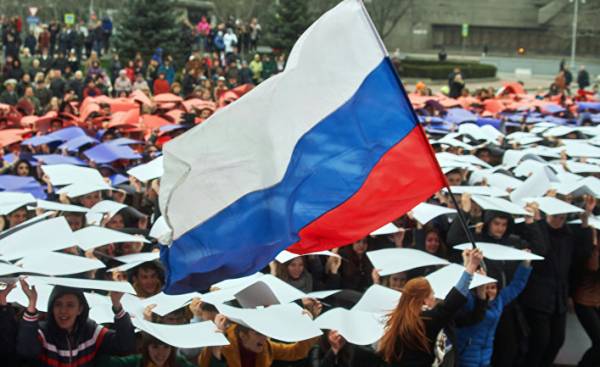 © RIA Novosti, Vasily Batanov | go to Photobacterium “Proud of Russia!”, dedicated to the third anniversary of the reunification of the Crimea with Russia
© RIA Novosti, Vasily Batanov | go to Photobacterium “Proud of Russia!”, dedicated to the third anniversary of the reunification of the Crimea with Russia
In short, IDPs from the occupied territories believe that the political methods of the government of Ukraine, making them second-class citizens, attached to the state, but not as full political actors. The Ukrainian government seems to be saying that the area was occupied illegally; however, IDPs perceive it as a form of rejection and condemnation. There are rumors that the officials called the people to take Russian passports, without which it is impossible to live on Russian controlled territory, “traitors”.
The fact that Ukraine did not protect Crimea from Russian invasion, coupled with the infringement of rights and lack of basic benefits on the continental Ukraine have forced many IDPs believe betrayed in fact themselves. The word, which is describes “betrayal”, required a number of meanings, because since the Second world war it has also been used to discredit and deprivation of civil rights of the Crimean Tatars. After the occupation of 2014, the Ukrainians asked why the Crimean Tatars did not take over the functions of the Ukrainian army and volunteered to protect the Peninsula from the Russian invaders. This choice of words felt awkward irony when you consider (not meet reciprocity) loyalty to Ukraine, the Crimean Tatars, which they displayed for more than two decades in independent Ukraine.
In addition, IDPs who left their homes, jobs and personal belongings in the Russian-occupied areas, may need financial assistance. Persons registered as internally displaced, have the right to receive a small regular allowance. However, this amount is so small that actually contacts the smaller part of IDPs from the Crimea. Another limitation is that benefits are highly dependent on circumstances, and there are many factors, able to revoke them. For example, if during a period of one month sitting without a job, benefits are reduced by half. After the two months they cease to produce at all. As a result, in the support that is denied to those who most need it. Representatives of the Ministry of social policy believe that the logic here is to avoid dependencies and to offer the incentive to work.
But with work, the situation is not easy. If earlier, NGOs have engaged in more than the reception and accommodation of IDPs, it is now in the focus of their attention is the problem of employment: preparation of the IDPs to the opening of a small business, as well as providing grants and loans. This is a wise approach; the Ministry of social policy notes that the number of job seekers exceeds the number of jobs, and those that are available are underpaid.
A special role
With an eye on the future government of Ukraine is trying to solve the issues of employment and housing faced by internally displaced persons, with the support of international organizations. The main donors are considered to be the world Bank and the development Fund of the United Nations. Over the past two years the Bank Group has provided Ukraine with $ 4.7 billion US. The international organization for migration and the high Commissioner of the United Nations high Commissioner for refugees also participated, distributing humanitarian aid among the most needy families, as well as giving out subsidies and loans to those who have a promising business proposal.
Despite the weak response from the government against IDPs Ukrainian civil society adopted them with enthusiasm. The Euromaidan protests led to the formation of coordinated networks, which have turned their attention to the IDPs after the revolution was already over. This phenomenon is very important. After the conflict with Russia in the East and the occupation of the Crimea in the South, people began to appear more clear understanding of what it means to be Ukrainian. This new civic identity, originally marked the fact that the common enemy was recognized Vladimir Putin, strengthened to incorporate the recognition of the unity of Ukrainian and Crimean Tatar history and a new sense of empowerment in the political sphere. IDPs from Crimea is not just the inhabitants of a distant land — they occupy a unique position in education. If before the average Ukrainian, knew very little about the Crimea or the Crimean Tatars, but now, after the occupation, interest in them has increased dramatically. Cooking clubs, workshops, personal friendship and the flourishing of new businesses opened by entrepreneurs from among the displaced — they all help to fill this gap. IDPs believe that they have a special role to contribute to the psychological preparation of the Ukrainian population to that day when from the Crimea (we hope) will be charged with the occupation.
The main value here is the freedom. It not only brings together the most different people throughout Ukraine, but also isolating them from the Russian, who apparently do not appreciate freedom of thought or conscience. Although the word freedom is hardly a surprise in this post-revolutionary moment, the convergence of the Crimean Tatars and Ukrainians in these conditions represents a shift compared to the isolation and suspicion that existed between the two groups in the past. It is important to stress that these sentiments were characteristic not only of the Crimean Tatar IDPs. The common refrain among all ethnic groups was the assertion that, while earlier the Ukrainian people of shared ethnicity, now it’s political loyalty.
A new sense of “Ukrainian”
The most important part of this civic identity depends on the creation of a collective past — a process that is closely intertwined with the projects of nation building. Such things as participating in battles on one side, and the total wedding ceremonies with similar melodies, shared names, style of dress of Tatars and Cossacks, and, of course, values, in the modern Ukraine are considered common property. This new sensation of “Ukrainian” is enhanced by the growing awareness of the ability to declare itself the world. To a certain extent, IDPs perceive their departure as a loss, which also meant new opportunities. And this is a radical contrast to the past, when the dominant narrative is inevitably present the idea of repression by the Soviets, either in the form of collectivization, or the 1944 deportation, or famine. Although the theme of deportation and its legacy of discrimination is reflected in the metaphor of “hybrid deportation” IDPs call into question any discourse that implies victimization or victimization and preference for such expressions as “cross the threshold” or “turn the page”.
It is difficult to predict what awaits Ukraine in the future: continue to strengthen its national consciousness, or eternal treason and betrayal would undermine the formation of a new political culture. People’s concern about that in Ukraine they may be called “traitors” and subjected to deportation, is a sobering reminder that the mood of Ukrainians after the revolution of dignity has yet to result in a reliable and robust civil society institutions. To visit elderly parents in the occupied Crimea, one IDP noted the contradictory situation of the displaced, stressing that the migrants always feel discomfort: whether it is the return to the occupied Crimea or life in a free Ukraine.
Greta welling is a lecturer on the faculty of comparative and international studies, Center for studies of Russia and Eastern Europe University of Michigan (Ann arbor).

